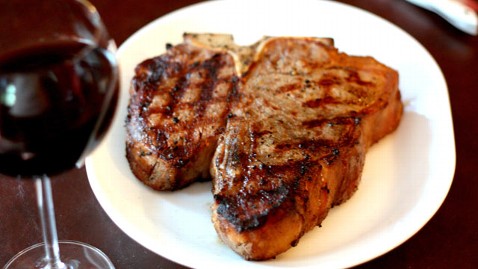Foodie Alert: How Palate Cleansers Work on 'Fatty Mouth'

Image credit: Suzanne Alarcon/Rutgers University Department of Nutritional Sciences
Reported by Dr. Julielynn Wong:
"Red wine with red meat," or so the old adage goes. Now new findings may help us better understand how palate cleansers like wine or tea refresh our mouths between courses.
A study, published on Monday in Current Biology, enlisted 21 volunteers to rate the feelings in their mouth after repeatedly sipping either tea or water while eating salami.
When subjects ate fatty food, they experienced a "fatty mouth feel" - a sensation that their mouths felt slippery or coated, said senior author of the study, Paul A.S. Breslin, a professor of nutritional sciences at Rutgers University and member of the Monell Chemical Senses Center in Philadelphia.
"If they are sipping tea while they eat this meat, then that tea helped bring the 'fatty mouth feel' back down again, more so when compared to sipping just water," he said.
These findings show that sipping an astringent beverage can counteract the oral sensation of fatty foods during a meal.
Palate cleansers feel astringent or dry in our mouths because they contain compounds that break down the lubricating proteins in our saliva, Breslin said. This is what allows them to provide a sensation of cleanness in our mouths by removing after-tastes and fatty mouth-coating sensations.
"If you notice how we eat fatty foods in general, we tend to pair them with something astringent," Breslin said. "They go together because they balance each other out.
"This is a principle in cuisines throughout the world."
One nutrition expert not involved with the study agreed.
"The process of dining involves a back and forth interplay of astringency and fat," said Dr. Jana Klauer, a New York City-based physician who specializes in nutrition, "The French have long known this."
In a typical French meal, she explained, you consume an aperitif - which is astringent - then a creamy soup, then a main course with some fat balanced with an astringent wine, then a palate-cleansing sorbet, and lastly, a dessert containing fat.
So food-lovers around the globe may have another reason to rejoice. Whether you consume a juicy steak with red wine, salad dressing containing oil and vinegar, or sushi with a side of ginger, these and other complementary pairings of fat and astringency may be good for our bodies, Breslin said.
"This natural tendency for seeking balance in our mouths might have benefits for maintaining a diversity of foods in our diet."